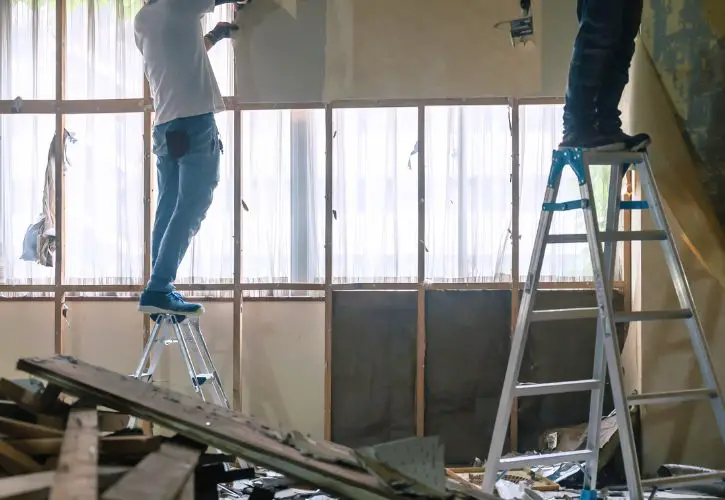Table of Contents
When undertaking a home renovation or remodeling project, demolition is often an essential step that can’t be avoided. However, it’s crucial to understand the common demolition hazards and how to prevent them before diving headfirst into your project. Take a look at this list before beginning your project so you can be fully prepared.
Falling Debris
One of the most common hazards during demolition is falling debris. To minimize this risk, secure any loose materials and use protective barriers to contain debris.
You can use covered walkways, toe boards, and perimeter guardrails to protect workers and bystanders from falling debris.
Collapsing Structures
An unstable structure is a significant risk during demolition projects, and walls or columns may collapse unexpectedly.
Conduct a thorough inspection of the structure before beginning work and choose the safest demolition method. Additionally, consider bracing or shoring up walls to ensure structural stability during the demo process.
Dust and Asbestos
Demolition projects tend to create a lot of dust, which can cause respiratory issues. Additionally, older buildings may contain asbestos, posing a severe risk to workers and the environment.
Implement the appropriate dust reduction measures, such as wetting down materials or using dust suppression tools. If asbestos is present, ensure proper removal and disposal by certified professionals.
Noise and Vibration
Excessive noise and vibration during demolition can lead to hearing loss and other health issues.
Employ noise reduction measures, such as using quieter equipment or enclosing the work area. Also, ensure workers wear proper hearing protection, like earmuffs or earplugs, to minimize the risk of hearing damage.
Electrical Hazards
Exposed or damaged wiring is a common hazard during demolition, posing a risk of electrocution or fires.
Shut off all utilities, including electricity, before demolition begins. Take additional precautions when working around electrical systems, such as using insulated tools and wearing protective gear.For a safe and successful demolition project, it is essential to understand the common demolition hazards and how to prevent them. Taking the necessary precautions and implementing preventive measures will lead to a safe working environment, as well as a smoother and more successful project overall. Don’t forget to keep safety at the forefront, and your demolition project will be a success.

